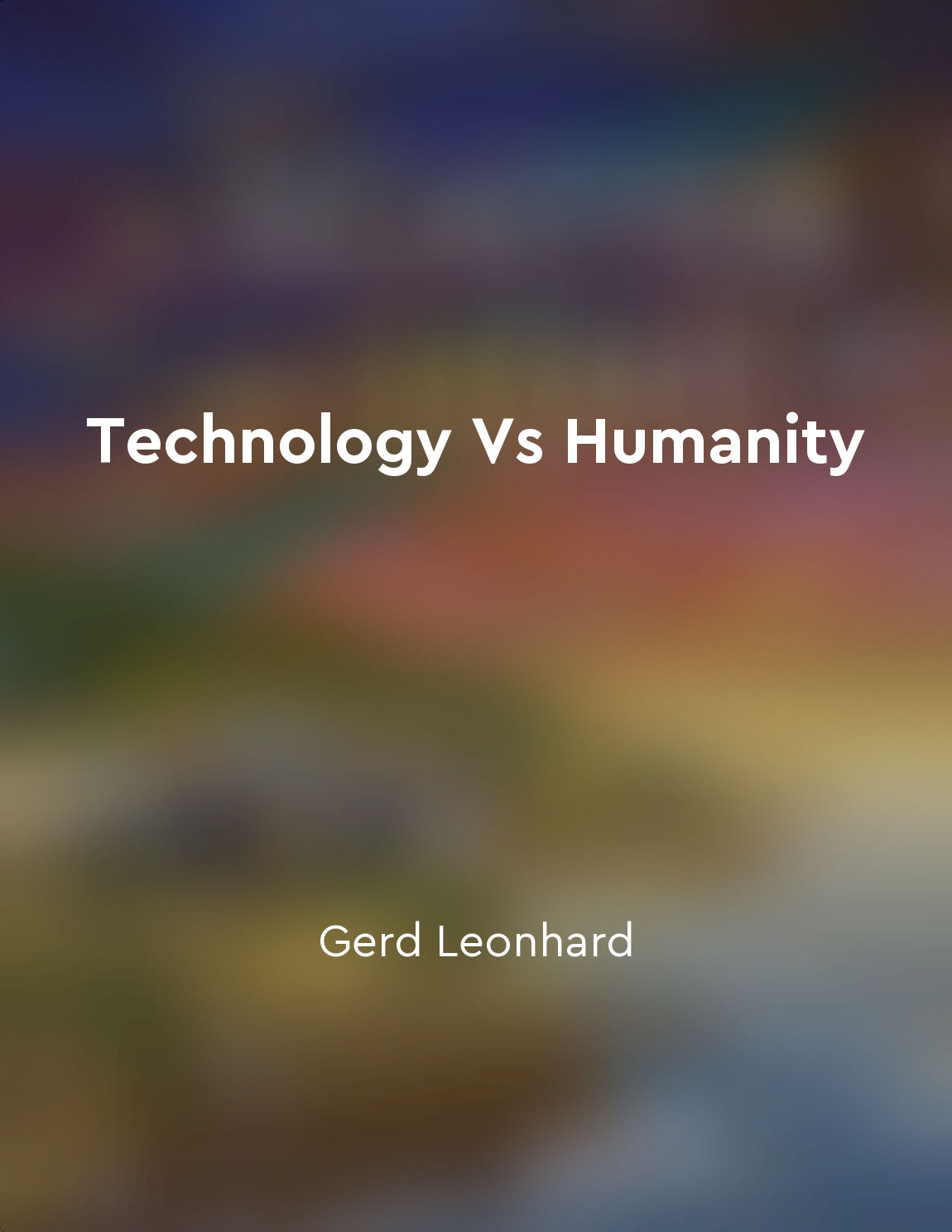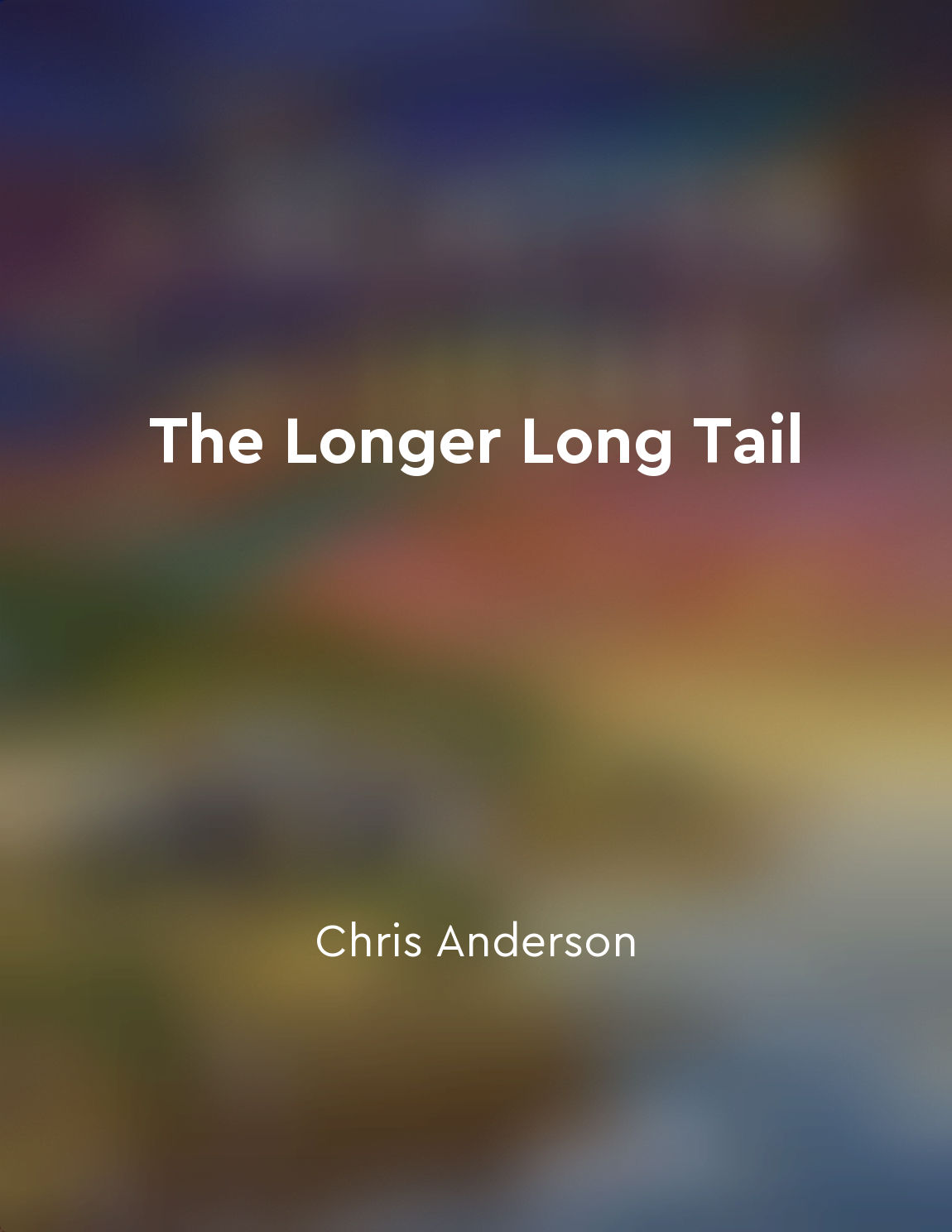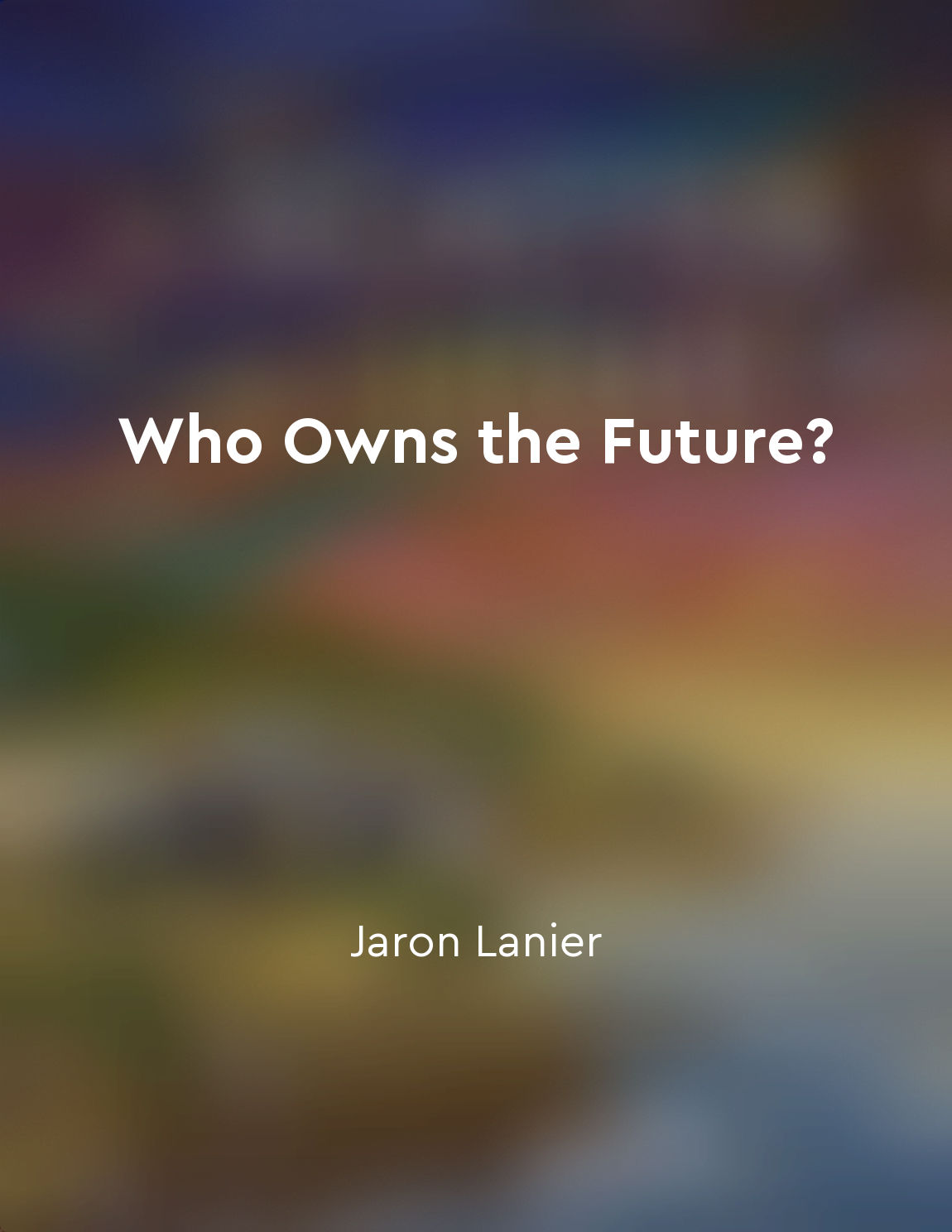Realworld labor should be compensated in the digital economy from "summary" of Who Owns the Future? by Jaron Lanier
In the current digital economy, people contribute their valuable data and attention to online platforms without receiving fair compensation in return. This asymmetry in value exchange has led to a concentration of wealth and power in the hands of a few technology companies, while the majority of individuals who generate the data see little benefit. As a result, real-world labor is not adequately compensated in the digital realm. The concept of compensating real-world labor in the digital economy is crucial for ensuring a more equitable distribution of wealth and power. By recognizing the value of individuals' data and attention, we can create a system where everyone benefits from the digital economy, not just a select few. This shift in perspective requires a reevaluation of how we think about and reward labor in the digital age. Furthermore, failing to compensate real-world labor in the digital economy perpetuates a cycle of inequality and exploitation. When individuals contribute their data and attention to online platforms for free, they are essentially giving away their labor without receiving fair compensation. This dynamic not only reinforces existing power imbalances but also hinders the potential for widespread prosperity and economic growth. To address this issue, we must rethink our approach to compensating labor in the digital economy. This includes implementing mechanisms for individuals to receive fair compensation for the data and attention they provide to online platforms. By valuing real-world labor in the digital realm, we can create a more inclusive and sustainable economic system that benefits everyone, not just a privileged few.- The concept of compensating real-world labor in the digital economy is essential for promoting economic justice and ensuring that individuals are fairly rewarded for their contributions. By acknowledging the value of data and attention as forms of labor, we can build a more equitable and prosperous society where everyone has the opportunity to thrive.
Similar Posts
We must protect and preserve our environment
The Earth is our home, the place where we live and thrive. It provides us with everything we need to survive - clean air to bre...

Impact of social media on class consciousness
The rise of social media has fundamentally altered the way people interact and perceive themselves in relation to others. This ...

Human connection must not be lost
In a world that is becoming increasingly digital and automated, it is essential to remember the importance of human connection....

Serendipity
Serendipity is the happy accident, the unexpected discovery, the fortunate surprise. It is the delightful moment when something...

The pursuit of excellence bordered on obsession
The characters in the story were driven by a relentless desire to achieve perfection, to push themselves beyond their limits in...
Workers must be prepared for fluctuations in income
As gig workers, our income is not fixed and stable. It can fluctuate from month to month or even week to week. This can be a ch...

Ethical questions surround AI
The rise of artificial intelligence has brought with it a host of ethical dilemmas. As machines become more intelligent, questi...


